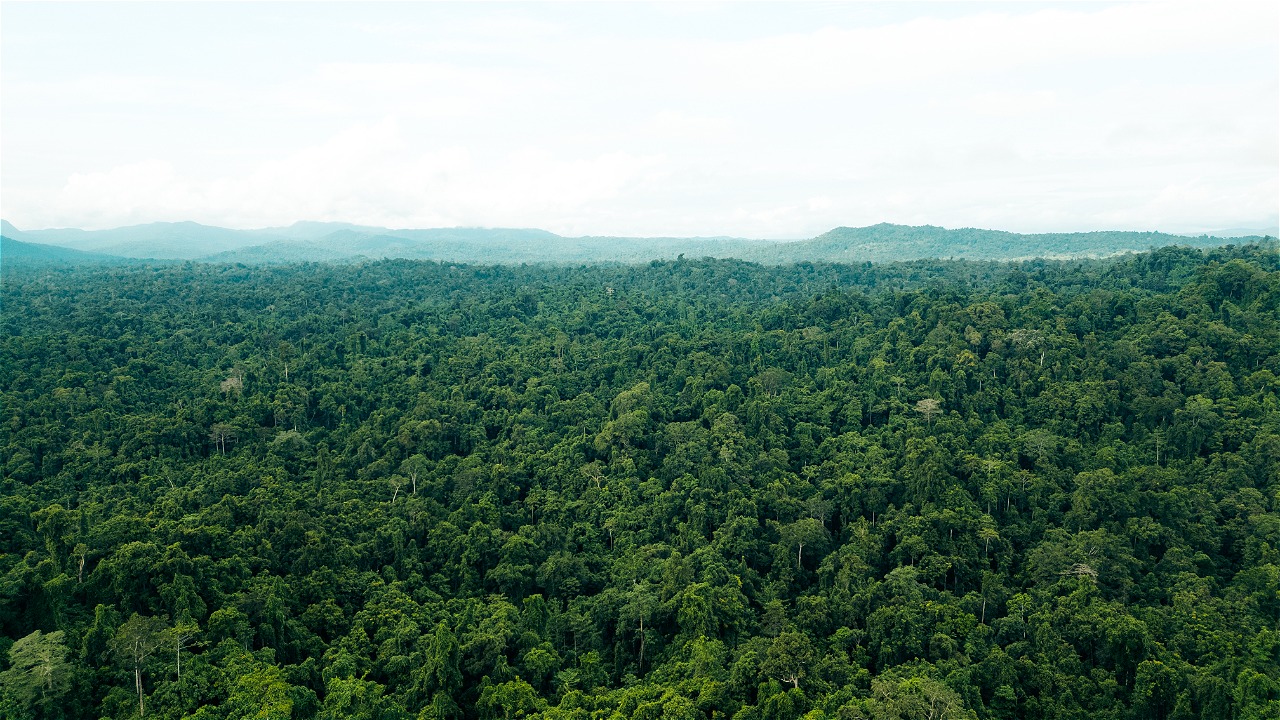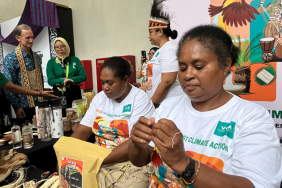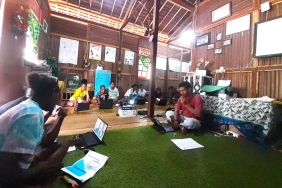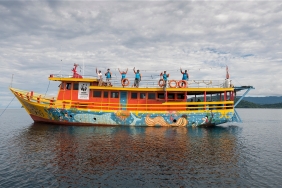EXPLORING THE POTENTIAL OF THE REGION THROUGH CROSS VISITS BETWEEN KSU IN PAPUA
By: Ade Erawati Sangadji (Learning Centre & Marketing Communication Coordinator Papua Program)
Ten WWF-Indonesia-assisted ecoforestry groups in Papua Province cross-visited the ecotourism birdwatching area of Rhepang Muaif, Nimbokrang District, Jayapura Regency. A total of 35 representatives from six indigenous community sustainable forest management cooperative groups (two from Yapen Islands District, one from Jayapura District, two from Sarmi District, and one from Merauke District), four organic cocoa farmer groups from Jayapura District (Pato farmer groups, Srukumani, Cipta Mandiri, and Nembu with a total area of 185 hectares), and one ecotourism group Rhepang Muaif in Jayapura Regency participated in the three-day event from December 13-15, 2017 in Rhepang Muaif Village, Nimbokrang District, Jayapura Regency. During the meeting, they shared experiences, successes, and failures in each assisted group.
They were also given material from the Papua Provincial Forestry Service on technical guidelines for timber business administration through the Timber Forest Product Collection Permit scheme for indigenous peoples in Papua Province. The Environmental Service delivered material on government policies in developing the creative economy of indigenous peoples. While the Papua Province Village Empowerment Office delivered material on government policies in the development of tourist villages in Papua Province.
In addition to receiving various materials, the participants also received training to improve their knowledge of Timber Business Administration, including recording and reporting on the Timber Forest Product Collection Permit scheme for KSU groups and training on sustainable funding management through the Credit Union (CU) scheme. To date, of the 13 permits that have been issued by the Governor of Papua, the existing KSUs will carry out the management and utilization of timber forest products with a total management area of 25,750 hectares.
According to Roki Aloisius, Northern New Guinea Leader WWF-Indonesia, this cross-visit activity is very useful to motivate KSU members in building potential in their respective working areas. "With good management, the community can receive direct economic benefits, both through the utilization of timber forest products through furniture production, as well as environmental services such as ecotourism," explained Roki Aloisius when giving directions to KSU members who attended.
On the same occasion, the Head of the Forestry Service, represented by the Section Head of Forest Product Distribution and Fees, Caroline Hursepuny explained, "The current licensing and timber business administration scheme is facilitated to facilitate the community to manage timber forest products." She also acknowledged the lack of direct socialization to the community on this matter. "Activities like this erase the longing to meet face-to-face with the community, discussing to unravel existing problems because the economic potential does not come from timber alone but tourism potential," Caroline Hursepuny added.
WWF-Indonesia Papua Program together with the Papua Provincial and District Forestry Service, since 2006 has actively assisted community groups in forest management through several stages. These stages start from institutional preparation, licensing, group capacity building through several trainings, preparation of management plans, namely the Business Plan for Utilization of Timber Forest Products of Customary Law Communities and the Annual Work Plan. Customary law communities are now ready to play a role in the implementation of sustainable forest management in Papua Province.





